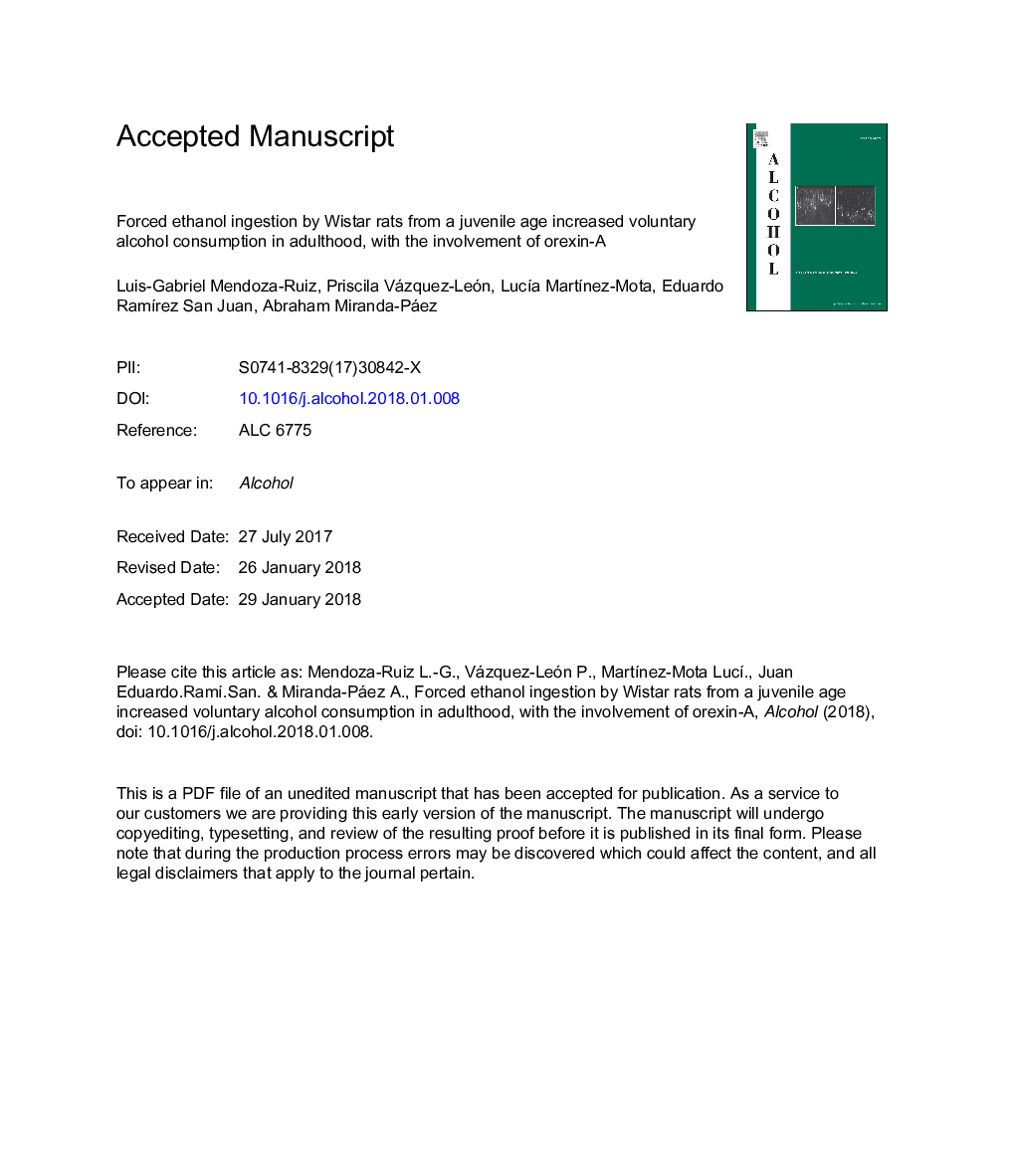| Article ID | Journal | Published Year | Pages | File Type |
|---|---|---|---|---|
| 7501377 | Alcohol | 2018 | 33 Pages |
Abstract
Human adolescents who drink alcohol are more likely to become alcoholics in adulthood. Alcohol administration (intraperitoneally) or drinking (in a 2-bottle free choice paradigm) during the juvenile/adolescent age of rats promotes voluntary alcohol consumption in adulthood. On the other hand, there is growing evidence that the orexinergic system plays a role in several rewarded behaviors, including alcohol ingestion. Since it is unknown what effect is exerted in adulthood by forced oral ethanol intake and/or administration of orexin-A (OX-A) in juvenile rats, the present study aimed to evaluate this question. A group of male Wistar rats was forced to drink ethanol (10% v/v) as the only liquid in the diet from weaning (postnatal day 21) to postnatal day 67 (46 days), followed by a forced withdrawal period. An age-matched group was raised drinking tap water (control). OX-A or its vehicle was microinjected intracerebroventricularly (i.c.v.) (1 nmol/0.6 μL) to explore its effect as well. Locomotor activity and voluntary ethanol consumption were later assessed in all groups. The rats forced to consume ethanol early in life showed an elevated level of ambulation and alcohol ingestion in adulthood. A single injection of OX-A increased locomotor activity and acute ethanol intake in rats with or without prior exposure to alcohol at the juvenile stage. In conclusion, forced ethanol consumption in juvenile rats led to increased voluntary alcohol drinking behavior during adulthood, an effect likely facilitated by OX-A.
Related Topics
Life Sciences
Biochemistry, Genetics and Molecular Biology
Biochemistry
Authors
Luis-Gabriel Mendoza-Ruiz, Priscila Vázquez-León, LucÃa MartÃnez-Mota, Eduardo RamÃrez San Juan, Abraham Miranda-Páez,
